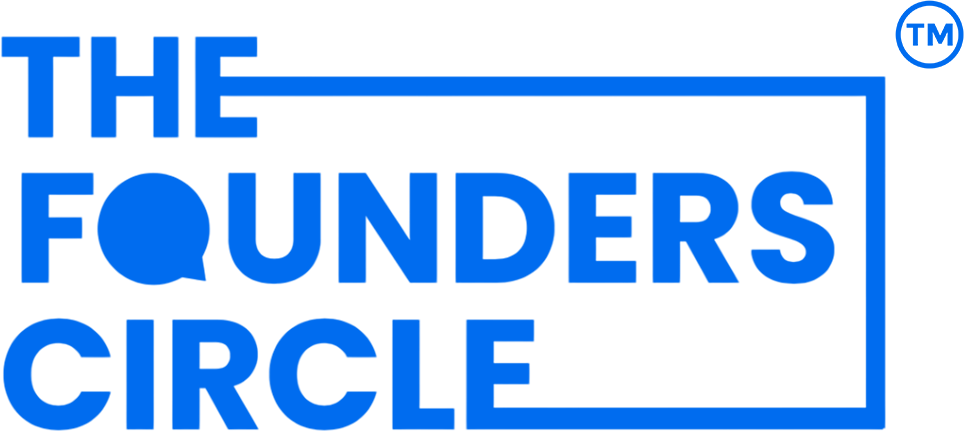Why Founders Should Practice Self-Reflection

In the startup world, there’s constant pressure to move fast, break things, and hustle endlessly. But amidst the pitching, product building, and fundraising, startup founders often forget to do one thing that could significantly improve their success rate: self-reflection.
While tools, tactics, and team-building are vital, your mindset, emotional intelligence, and self-awareness are the foundation of everything you create. At The Founders Circle, we’ve seen firsthand how startup founders who invest time in self-reflection outperform, outlast, and outgrow their competitors—not just in business, but in life.
What Is Self-Reflection, and Why Does It Matter?
Self-reflection is the process of looking inward—examining your thoughts, behaviors, motivations, wins, and mistakes with honesty and clarity. For startup founders, it means pausing to ask:
- What decisions did I make this week, and why?
- What’s working in the business? What’s not?
- How am I feeling, mentally and emotionally?
- What patterns or habits might be helping or hurting me?
In a world that glorifies speed, self-reflection creates depth. And that depth is where your greatest breakthroughs live.
Why Every Founder Needs Regular Self-Reflection
Here’s why building a habit of self-reflection can be a competitive advantage for those developing successful founder habits:
1. Better Decision Making
Startups demand quick decisions under pressure. But without reflection, you risk repeating mistakes or overlooking key insights. Self-reflection helps startup founders:
- Review their decision-making process
- Learn from failures and course-correct faster
- Spot blind spots before they become setbacks
2. Stronger Leadership
Great startup founders don’t just build products—they build people. Self-aware leaders:
- Communicate more clearly
- Respond with empathy and emotional intelligence
- Inspire trust across their team
When you understand your own triggers and values, you lead with authenticity and vision.
3. Sustainable Mental Health
Burnout is a silent killer in the startup ecosystem. Regular self-reflection helps startup founders:
- Check in with their emotional state
- Identify sources of stress or anxiety
- Set boundaries and reset expectations
Startup success shouldn’t come at the cost of your well-being.
4. Increased Focus and Clarity
Reflecting on your actions helps cut the noise. You’ll better understand:
- What truly moves the needle
- What you should stop doing
- Where your time and energy are best spent
With focus comes momentum—and that’s something most startup founders are constantly chasing.
How to Start Practicing Self-Reflection as a Founder
You don’t need a therapist on speed dial or an executive coach to get started. Here are simple yet powerful ways startup founders can build a reflection practice into their daily or weekly routine:
1. Daily Journaling
Spend 5–10 minutes each morning or evening writing down:
- What went well today?
- What challenges did I face?
- What did I learn?
Use tools like Notion, Evernote, or pen and paper. Over time, patterns will emerge.
2. Weekly Founder Review
Set aside 30–60 minutes weekly to reflect on:
- Wins and losses
- Team dynamics
- Progress toward goals
- Emotional and physical health
Ask yourself, “Am I becoming the kind of founder I want to be?”
3. Ask for Honest Feedback
Self-reflection isn’t just about internal insights—it also means being open to outside input. Ask co-founders, team members, or mentors:
- “What’s one thing I could do better?”
- “What am I not seeing?”
The best startup founders invite challenge, not just praise, and this strengthens a more resilient mindset over time.
4. Meditation or Mindfulness Practice
Even 5 minutes of silence can help you slow down and process. Tools like Headspace or Calm make this easy. You’ll improve emotional regulation and reduce reactivity—skills every startup founder needs in high-stakes environments.
5. Join a Founder Peer Group
Platforms like The Founders Circle give you a safe space to:
- Share struggles with like-minded entrepreneurs
- Gain perspective from others at similar stages
- Reflect in community, not just in isolation
Self-reflection becomes easier—and more powerful—when done with peers who understand the journey of startup founders.
How The Founders Circle Supports Reflective Founders
At The Founders Circle, we don’t just help you connect—we help you grow. Through curated mastermind groups, expert sessions, and reflective prompts, we give startup founders the tools to build not just a great startup, but a great version of themselves.
Members say it’s where they can pause, process, and gain clarity—without the pressure of always “performing.” If you want a deeper, more intentional founder experience, this is where you belong.
Conclusion: The Most Powerful Tool Is Self-Awareness
In the race to build, scale, and win, it’s easy to overlook the power of pausing. But the truth is, the most successful startup founders aren’t just builders—they’re learners. When you practice self-reflection consistently and surround yourself with strong founder communities, you grow with more clarity and confidence.
By practicing self-reflection regularly, you’ll:
- Make sharper decisions
- Lead more effectively
- Grow with more purpose
- Stay grounded in the chaos
For startup founders, self-awareness isn’t a luxury—it’s a leadership skill.
